Struggling with Alcohol? We’re Here to Help
Alcohol addiction & Abuse
At Quadrant, we’ve helped thousands reclaim their lives from alcohol abuse. Whether you’re struggling with chronic alcohol addiction, binge drinking, or alcohol use disorder (AUD), our nationwide treatment network is here to guide you to lasting recovery.
At Quadrant, we guide individuals toward lasting recovery from alcohol abuse. Let us help you reclaim your life.
Combatting Addiction Is Hard. Get the Right Care
What is Alcohol addiction?
Alcohol addiction, also known as alcohol use disorder (AUD), is a chronic disease marked by the inability to control or stop drinking despite negative consequences. It affects the brain’s reward system, leading to cravings, dependency, and withdrawal symptoms when alcohol use stops.
People with AUD may drink heavily on a daily basis or go through binge-drinking episodes. While alcohol is legal and socially accepted, it remains one of the most dangerous and deadly addictive substances when misused.
If you or someone you love is showing signs of alcohol addiction, mental health struggles, we can help.

How to recognize alcohol addiction?
Not sure if it’s a problem? Here are some warning signs that alcohol use may have crossed into addiction:
- Increased alcohol tolerance and need to drink more
- Cravings or obsession with drinking
- Drinking alone or in secret
- Drinking despite health, legal or social consequences
- Failed attempts to stop drinking, relapse
- Withdrawal symptoms like tremors, sweating or anxiety when not drinking
If any of these apply, call us today for a confidential assessment.
What are the risks factor of developping AUD ?
Alcohol Use Disorder (AUD) does not develop overnight. Several underlying risk factors can increase the likelihood of developing alcohol addiction over time. These include genetic, psychological, environmental, and behavioral influences that make certain individuals more vulnerable to problematic drinking patterns.
People with a family history of alcoholism, untreated mental health conditions, or high levels of daily stress may face a greater risk. Social pressure, early exposure to alcohol, and using alcohol as a coping mechanism can also play a major role. The more of these risk factors a person has, the more likely they are to develop a dependence on alcohol.
Understanding your risk is the first step toward prevention or early intervention. If you’re concerned about your relationship with alcohol, our team is here to help.
Recovering from alcohol addiction Is Possible
Hear from our alumni who’ve overcome alcohol addiction and rebuilt their lives. Our network of accredited facilities provides hope, healing, and lifelong support.
Risks and dangers of Alcohol Addiction
The real Cost of abusing alcohol
Health risks
Long-term alcohol abuse can take a serious toll on the body, leading to chronic disease, organ damage, and dangerous withdrawal symptoms without proper treatment. Like:
- Liver disease, including cirrhosis, fatty liver, and alcoholic hepatitis
- Heart problems: high blood pressure, irregular heartbeat, stroke
- Brain damage: memory, poor coordination, and cognitive decline
- Cancer risk, especially liver, breast, throat, and colon.
- Immune system suppression: weaken your protection
- Alcohol Withdrawal Syndrome: sudden cessation can lead to seizures, hallucinations, and deadly delirium tremens (DTs)


Life & social consequences
Alcohol addiction doesn’t just affect physical health, but it impacts every part of life, from relationships and mental well-being to work, finances, and legal stability.
- Mental health risks: depression, anxiety, and suicidal thoughts.
- Relationship conflict: trust issues, separation, divorce, broken families.
- Legal problems: DUIs, arrests, probation, court-mandated treatment
- Job loss, poor work performance: less focus, reliability, and job stability
- Financial struggles: the cost of drinking, medical bills, and lost income
- Social isolation: alcohol addiction often results in withdrawing from friends, family, and community
Why you shouldn't detox by yourself
Detoxing from alcohol without professional help isn’t just difficult, it can be dangerous and even deadly. Alcohol withdrawal is a serious medical condition that requires 24/7 monitoring and care. When someone who is physically dependent on alcohol suddenly stops drinking, their body can react with unpredictable, sometimes life-threatening symptoms. Attempting to detox alone often leads to relapse, severe complications, or emergency hospitalization.
Alcohol withdrawal symptoms: What to expect
The severity of withdrawal symptoms varies depending on how long and how heavily someone has been drinking. These symptoms typically fall into three categories:
- Mild symptoms: Anxiety, tremors, sweating, nausea, headaches, and irritability
- Moderate Symptoms: High blood pressure, confusion, vomiting, insomnia, blurred vision, depression
- Severe Symptoms: Seizures, hallucinations, severe dehydration, and delirium tremens (DTs), a medical emergency that can result in death without treatment
Even “mild” symptoms can become overwhelming quickly. This is why medical supervision during detox is essential.
The two phases of alcohol withdrawal:
Withdrawal doesn’t end after a few days. It progresses in phases, and both can lead to serious setbacks without the right care. There are two main phases:
Acute withdrawal
Symptoms usually begin 6 to 12 hours after the last drink and peak within 1 to 3 days. This is the most intense phase and carries the highest risk of seizures and DTs, especially in long-term heavy drinkers.
Post-acute withdrawal syndrome:
Many individuals then experience PAWS, a stage marked by lingering symptoms such as anxiety, fatigue, sleep disturbances, and mood swings that can last for weeks or even months. Without proper support, this phase often leads to relapse.
Trust quadrant health to detox from alcohol safely
Our medical detox programs are designed to keep you safe and stable during both phases of withdrawal. They provide:
24/7 monitoring by clinical staff
Round-the-clock supervision ensures your safety, manages complications early, and provides peace of mind during the most critical stages of withdrawal.
Medication-assisted treatment (MAT)
Carefully prescribed medications help reduce withdrawal symptoms, prevent seizures, and make the detox process more comfortable and manageable.
hydratation, nutrition and sleep support
Stabilizing the body with proper fluids, balanced meals, and restorative sleep is essential for healing, energy, and overall physical recovery during detox.
Mental health and emotional support
Our licensed professionals are here to help you manage anxiety, mood swings, and psychological stress, providing stability during the process.
step-by-step alcohol addiction recovery journey
Comprehensive alcohol Addiction Treatment Across All Levels of Care
Recovering from alcohol addiction is a deeply personal process that varies from one individual to the other. Effective alcohol abuse treatment should be tailored to the severity of alcohol use and any co-occurring mental health conditions. At Quadrant Health, we provide a complete continuum of care designed to support you at every stage of alcohol recovery. From medically supervised alcohol detox to residential rehab, partial hospitalization, outpatient programs, and dual diagnosis treatment, everything you need is here in one place. Whether you’re seeking help for chronic alcohol abuse, early signs of alcohol dependence, or relapse prevention, our team is here to guide you through a structured path toward long-term sobriety and healing.
Detoxification
Residential Inpatient
Partial Hospitalization
Intensive Outpatient
Virtual Intensive Outpatient
Dual Diagnosis
Why Quadrant health?
At Quadrant, your recovery is our priority. We combine proven clinical expertise with compassionate care to guide you through every stage of alcohol addiction treatment. Our experienced team of licensed professionals creates personalized plans that integrate evidence-based therapies, holistic modalities, and dual diagnosis support when needed. With luxury, well-equipped facilities and a supportive, judgment-free environment, we offer more than just alcohol rehab. We offer a path to lasting transformation. Here, you’ll find the structure, flexibility, and care needed to rebuild your life, your way.
Explore:
Therapies we offer:
Frequently asked questions
What is alcohol addiction?
Alcohol addiction, or Alcohol Use Disorder (AUD), is a chronic condition marked by an inability to control drinking despite negative consequences.
What is alcohol addiction?
Alcohol addiction, or Alcohol Use Disorder (AUD), is a chronic condition marked by an inability to control drinking despite negative consequences.
What is alcohol addiction?
Alcohol addiction, or Alcohol Use Disorder (AUD), is a chronic condition marked by an inability to control drinking despite negative consequences.
What’s the difference between alcohol abuse and addiction?
Abuse involves harmful patterns of drinking, while addiction includes physical dependence, cravings, and withdrawal when alcohol use stops.
How can I tell if someone has a drinking problem?
Common signs include secretive drinking, blackouts, mood swings, neglecting responsibilities, and continuing to drink despite health or legal issues.
How long does alcohol detox and withdrawal take?
Alcohol detox typically lasts 3 to 7 days. Post-acute withdrawal symptoms (PAWS) such as anxiety and sleep issues may last for several weeks or longer.
Can alcohol addiction be treated successfully?
Yes. Comprehensive treatment including detox, therapy, medical support, and relapse prevention can help you achieve lasting sobriety.
What treatment programs are available?
We offer a full continuum of care, including medical detox, residential inpatient, PHP, IOP, virtual treatment, and dual diagnosis support.
Is it safe to detox from alcohol at home?
No. Alcohol withdrawal can be dangerous or fatal without medical supervision. Professional detox ensures safety and medical care.
How does the admissions process work?
It starts with a confidential phone call. Our admissions team will assess your needs, verify your insurance, and help you plan your first step into treatment.
Does insurance cover alcohol rehab?
Most major insurance plans do cover alcohol treatment. We can quickly verify your benefits and explain what’s covered before you commit.

